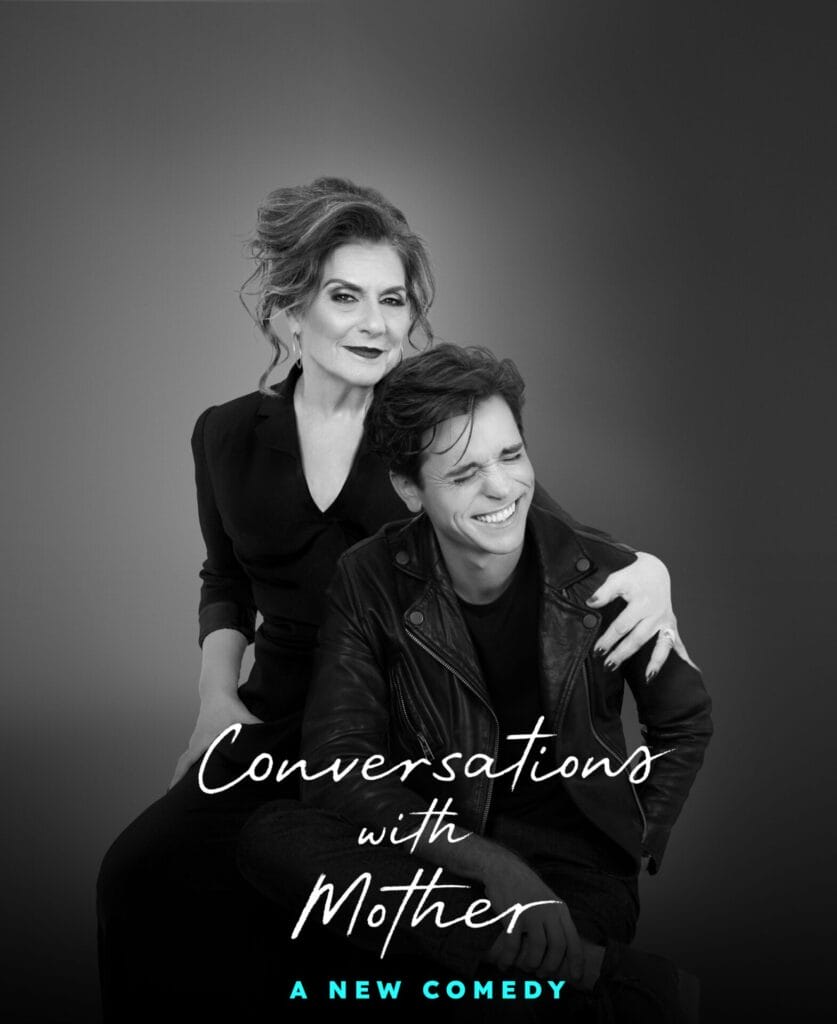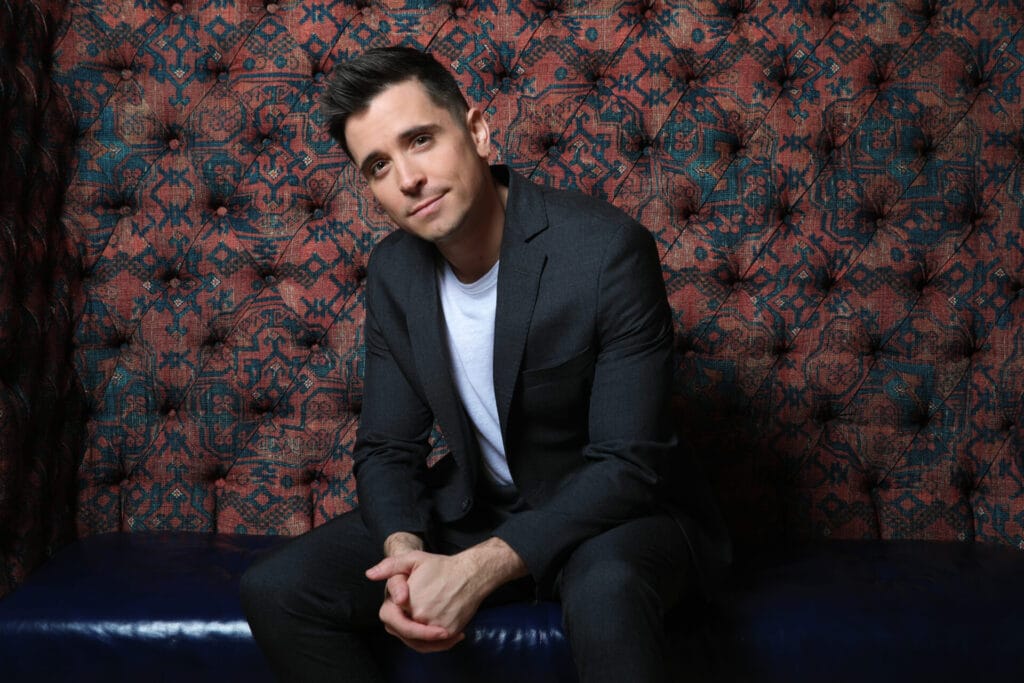In the two-person play Conversations with Mother, Tony Award-winning actor Matt Doyle plays the character of Bobby opposite Caroline Aaron who plays Maria Collavechio — Bobby’s mother. The comedy directed by Noah Himmelstein navigates the relationship between the conventional Italian matriarch and her free-spirited gay son over five decades.
Conversations with Mother is a very personal for playwright Matthew Lombardo as it is semi-autobiographical. Doyle said that it is a “huge blessing” to honor Lombardo’s triumphs and struggles on stage every night.
“He has written a very human and touching story,” said Doyle in a recent interview with GLAAD. “Getting to know him and everything he’s worked through over the years has been incredible.”
Conversations with Mother can be seen at Theater 555 in New York City through May 11. Read GLAAD’s full interview with Doyle below.
When you first read the script for Conversations With Mother, what was your reaction?
Within the first 20 pages, I thought, “Oh my god, this is about every gay man and their mother.” There is a really special bond between a mother and a gay son. A friendship that is almost impossible to dismantle. I love that the play focuses in on that and celebrates it. After my first read through, I had laughed out loud and cried. I sent my agent an email saying, “I’m in.”
Why do you think there is such a strong relationship between queer people and matriarchs?
I believe it has to do with being so open and so vulnerable at such a young age. I came out to my mother when I was only 16. Sexuality is a deeply personal subject to discuss. I remember feeling like so many barriers of my relationship with my mother had been broken that night. The way we spoke to each other changed. In order to be understood, we had to speak to each other as friends, not family. That kind of vulnerability continues. I share everything with my mother. Sometimes too much! She is my best friend and knows me better than anyone.
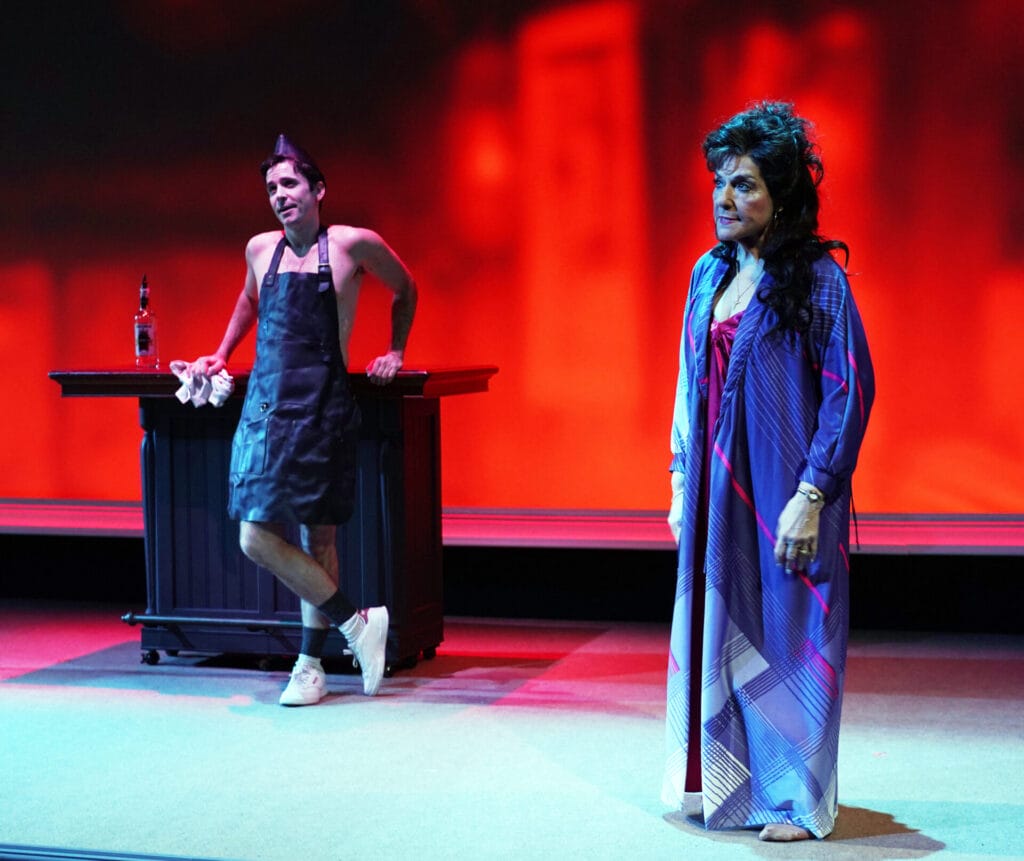
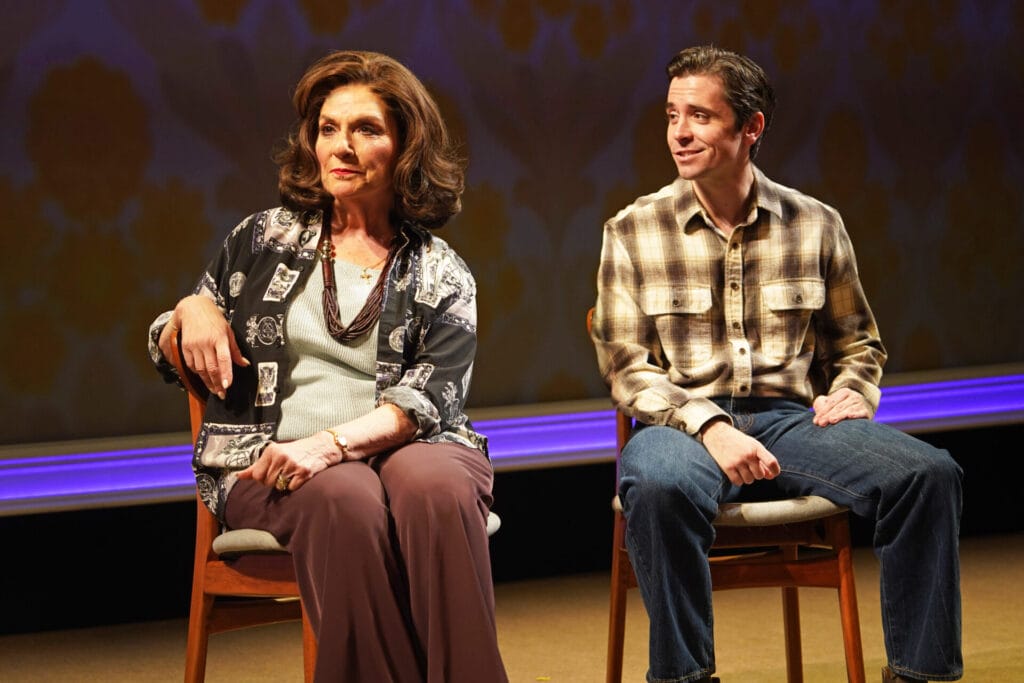
How have you seen Conversations with Mother evolve from rehearsals to its opening earlier this year to now?
We had no idea what the language of our show would even be when we first entered the rehearsal room. Our director, Noah Himmelstein was so generous in letting us explore. [We asked questions like] “Would we be holding phones? What are the props going to be like? How do we address each other theatrically when we aren’t in the same room?”
It took some time finding the simplicity and clarity the piece has now. I think the way it’s staged allowed the audience to really drop into the humanity of both characters. They are both rather self-destructive at times — especially Bobby. The stillness and openness of the staging grounds us and helps the audience relate to us.
How do you think the play speaks to the current social landscape — specifically to the queer community?
What I love about this relationship is that Bobby’s sexuality is never the focus. This isn’t a play about an Italian Catholic trying to accept her gay son. It’s about the genuine drama and difficulties the two overcome in their daily lives. It’s about how they rely on one another to survive. I think we need more queer characters right now that just simply exist. In this horrible political climate, the issue shouldn’t just be about acceptance, but visibility. Keep queer stories alive and show people a mother who accepts her son from the moment the show begins.
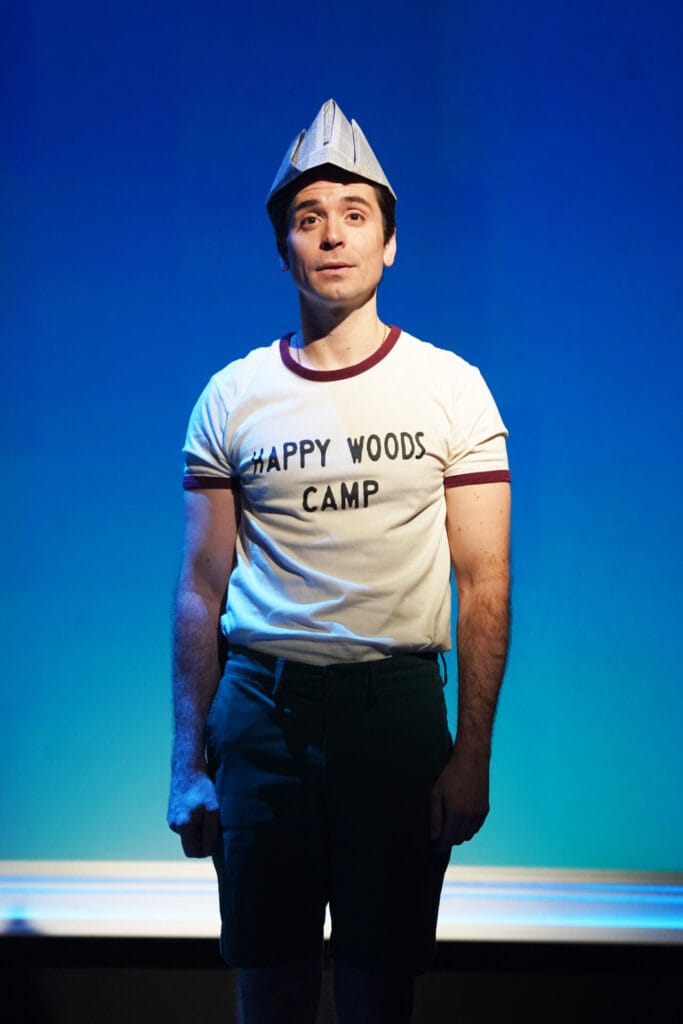
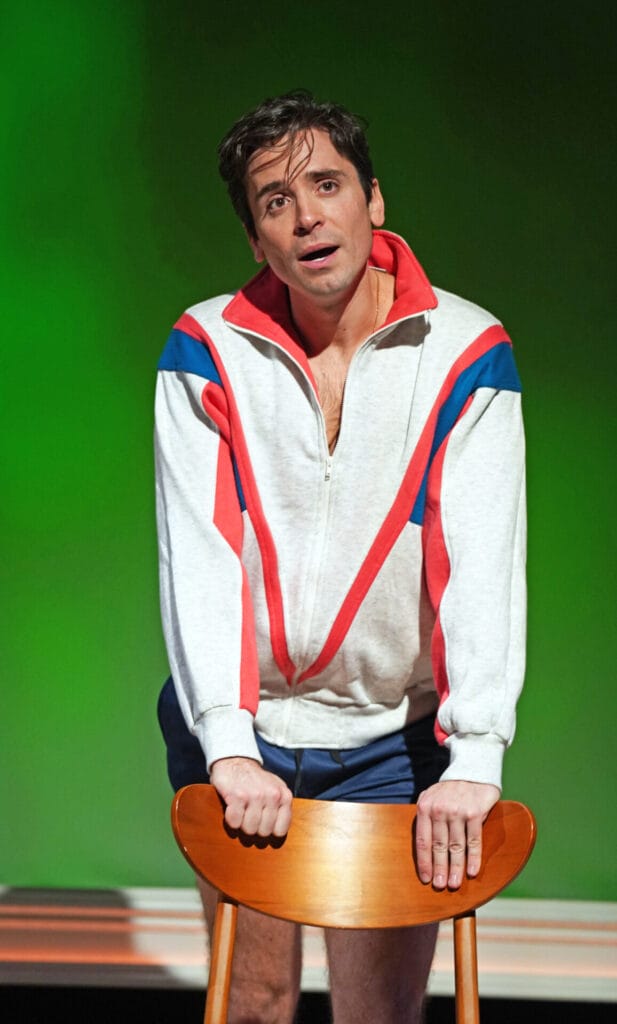
What makes this story universal?
The show is ultimately about family and the constants in our lives. How we grow with them. How we hurt them. How we lift them up. How we need them. How they shape our own stories. Every single one of my friends who have seen the show told me they saw themselves in these characters.
The play is semi-autobiographical for playwright Matthew Lombardo. How did you balance telling a story that is personal to him while adding your own stamp on the narrative?
To keep the material honest, I knew I had to approach the role carefully. I couldn’t play Matthew. I needed to play it as if I had experienced the same things he had gone through or it would come off insincere. Matthew was incredibly generous in creating Bobby with me. He’s been so open with me during this process. I have no doubt the experience has been both scary, and ultimately, deeply healing for him.
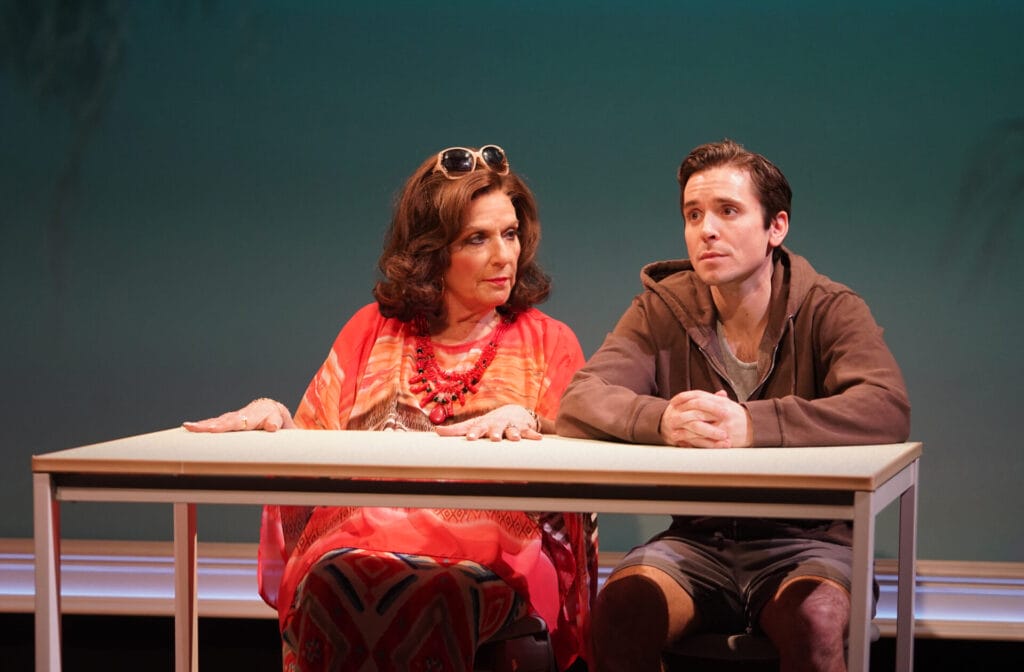
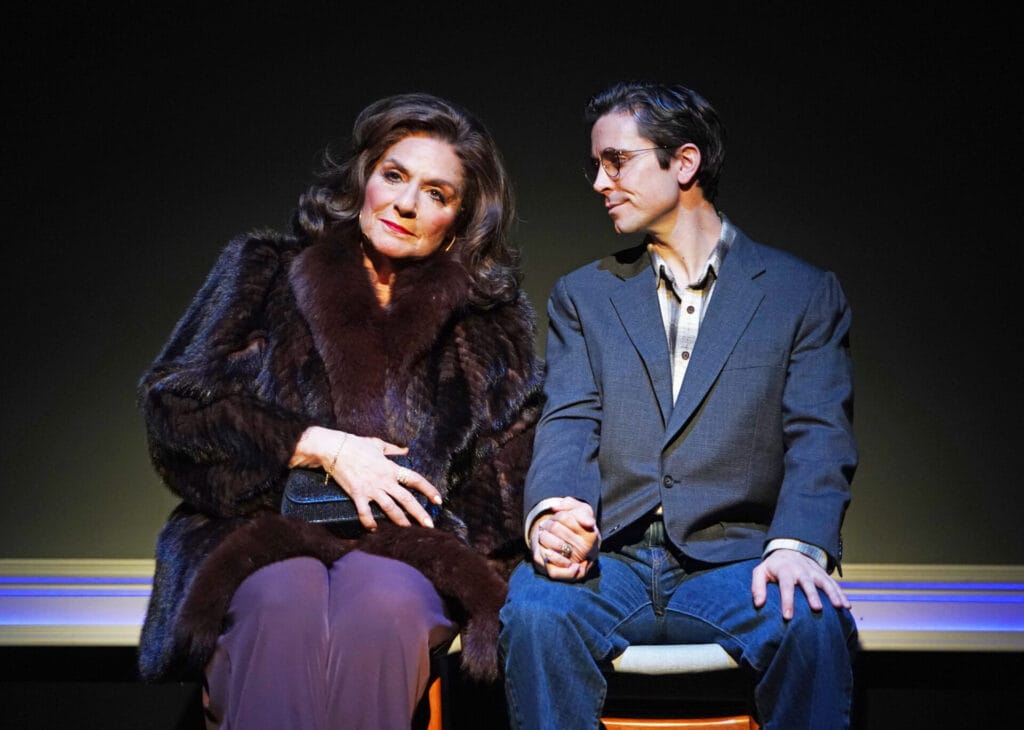
What have been some memorable reactions from audiences?
Caroline and I have come to accept that we have no idea what to expect from audiences. Some days we have screaming laughter. You’d think we were on a lot in Hollywood doing a sitcom after the warm up comedian had been out with the audience for an hour. Other days, it’s soft giggles, and the audience seems to be deeply triggered, focused on the drama within the piece. I’m learning that people will pull what they want from the show. If they want a good laugh and escape, they’re going to get that. If they come in looking for a good cry, they’re going to approach it that way from the get go. We had an audience member recently who stood and began clapping with tears streaming down her face in the final moments of the show, long before the curtain call. It was incredibly touching.
What would it have been like for you to see a play like Conversations with Mother when you were younger?
Recently, I met a mother and her queer teenage son in the lobby after the show. They both had been moved to tears and were so excited to tell me what the experience meant to them. The son just kept saying “it’s us!’. I find a lot of peace in that right now. We need queer stories now more than ever. I work in an often brutal business, but moments like that remind me how special theater is. I just want people to feel safe and seen.
